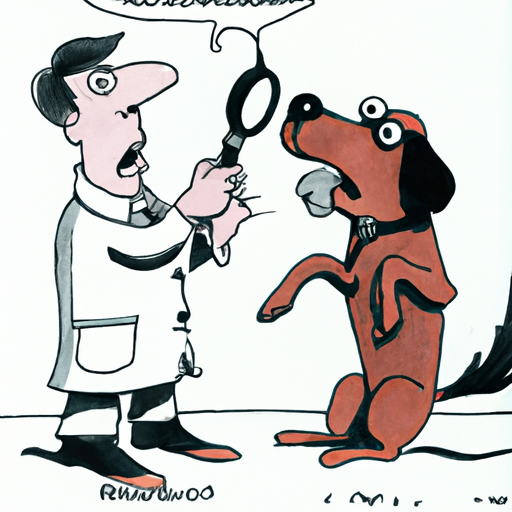As a caregiver, you’re always on the lookout for your furry friend’s well-being. You make sure they eat right, exercise regularly, and get plenty of love. However, you’ve noticed something peculiar—your dog’s mouth smells like fish. Let’s dive into why this might be happening and what you can do about it.
H2: Understanding Your Dog’s Natural Breath
Dogs don’t typically have minty fresh breath, but a fishy smell can definitely be cause for concern. Dogs explore the world with their mouths, so it’s not uncommon for their breath to occasionally smell like whatever they’ve recently eaten or licked. However, if the fishy smell is persistent, it could be a sign of a deeper issue.
H2: Common Reasons for Fishy Breath
Here are a few potential causes for your dog’s fishy breath:
- Diet: Some dog foods are fish-based, which could be the source of the smell. Look at the ingredients in your dog’s food and treats to see if fish is a prominent component.
- Oral Hygiene: If your dog’s mouth is not cleaned regularly, bacteria can build up, leading to bad breath.
- Anal Glands: Dogs have two small glands located near their rear end that can occasionally give off a fishy smell. If your dog is licking this area frequently, it could be contributing to the smell of their breath.
H2: Treating Fishy Breath
Preventing and treating fishy breath in your dog often involves consistent oral care and dietary adjustments:
- Brush your dog’s teeth regularly, ideally daily.
- Provide dental chews that can help clean your dog’s teeth.
- Schedule regular vet check-ups to monitor your dog’s oral health.
- Consider changing your dog’s diet if it is heavily fish-based.
H2: When to Seek Vet Care
If the fishy breath persists even after you’ve taken steps to address it, it’s time to consult your vet. The smell could be indicative of underlying health issues like gum disease, gastrointestinal problems, or issues with the anal glands.
| Signs to Look Out For | Potential Issues |
|---|---|
| Loss of appetite | Dental disease, gastrointestinal problems |
| Excessive drooling | Dental disease, oral trauma |
| Frequent licking of the rear end | Anal gland issues |
FAQ Section
Q: How often should I brush my dog’s teeth?
A: Ideally, you should brush your dog’s teeth daily. However, a few times a week can be beneficial as well.
Q: Are certain breeds more prone to fishy breath?
A: Breeds with flatter faces, like Bulldogs and Pugs, often have more dental issues, which can lead to bad breath.
Q: Can I use human toothpaste to brush my dog’s teeth?
A: No, human toothpaste can be harmful to dogs. Always use a toothpaste formulated for dogs.
Q: Is fishy breath in dogs an emergency?
A: Not necessarily, but persistent bad breath can be a sign of underlying health issues and should be checked by a vet.
With a bit of vigilance and regular care, you can ensure that your dog’s fishy breath is a thing of the past. Remember, as a caregiver, it’s your responsibility to keep an eye on any changes in your dog’s health and seek veterinary care when necessary.



